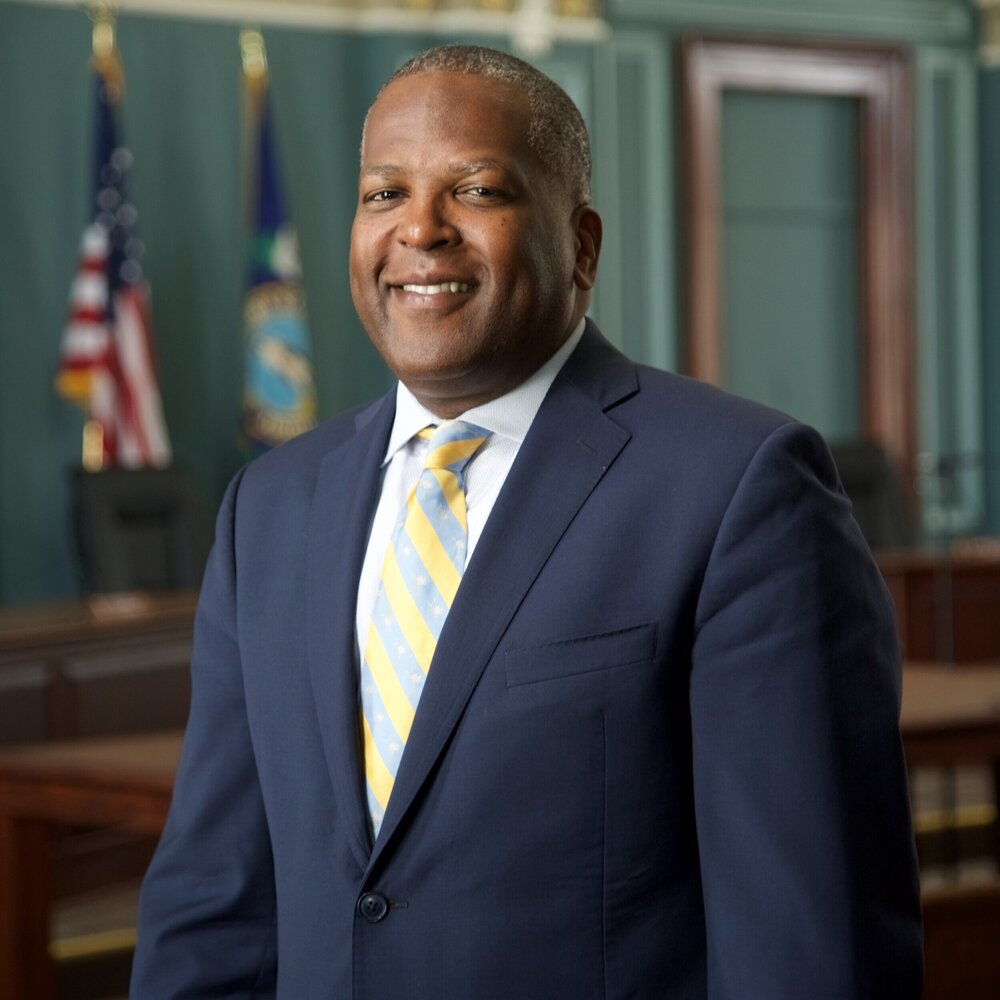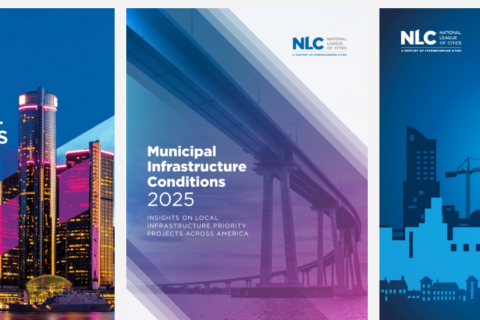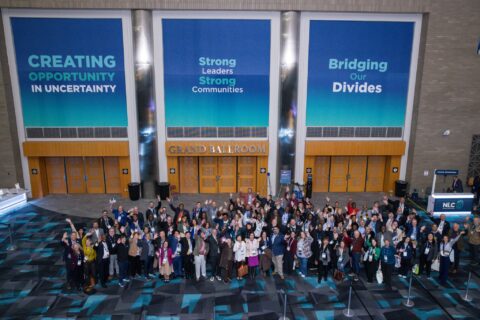
Stephen Benjamin served the people of Columbia, SC as mayor for 12 years and has also worked as President of the U.S. Conference of Mayors and the African American Mayors Association. Last month Indigov, a leading constituent engagement solution and NLC Partner, met with Mayor Benjamin for a talk about constituent communication. Throughout our conversation he shared his thoughts, experiences, and recommendations for how to effectively connect constituents to their local government in the digital age.
Why Does Civic Engagement Matter?
Public trust in government may be at its lowest in the United States. While it’s impossible to pin down all the contributing factors to this, Mayor Benjamin attributes the muddling of news and information as one of the toughest challenges to overcome:
“There was a time many moons ago when everyone went to three older gentlemen on the news on ABC, NBC, and CBS and got all the news of the day. Maybe they’d get a little bit more from the shock jock on the way to work in the morning on the radio.
It’s so difficult now with so many different forms of communication. That’s why it’s important that people are able to hear YOUR voice; that they are able to hear directly from you and those you’ve hired, and to make sure you stay in contact with them during what can be some very difficult times.”
The Six Building Blocks
Throughout our discussions, Mayor Benjamin helped us identify the six communication building blocks that every local elected official should be thinking about:
Respect People’s Priorities
“When someone calls you about something that might even seem at first glance to be somewhat pedestrian, I assure you, to them it’s the most important issue of the day.”
One of the greatest benefits of working in local government, compared to the state or federal level, is that you are [by nature] immersed in your community as you go about your day-to-day. Proximity not only makes the role personal, but it also makes your decisions more directly relevant than the average bill in congress.
People will email or call the office about anything and everything. It can be easy to brush off complaints about trash collection as unimportant, but if someone took the time to reach out, you can guarantee that it really is important to them and deserves to be taken seriously.
Constituents primarily desire their concerns to be acknowledged. More often than not, when you take those angry phone calls and respond to the passive-aggressive emails, people will (perhaps begrudgingly) appreciate the fact that you responded, even if your answer is not what they wanted.
“The greatest mistake is to just not respond.”
Make Yourself Accessible
“When it comes to mayor’s offices, city councils, or what have you, it’s amazing how many cities still just rely on email to respond back to constituents and rely on phone calls and systems from the 20th century.”
Many Americans have outpaced the average government office when it comes to the communication technology that they use. Through interactions with private sector corporations, they have also grown to desire similar focuses on accessibility and service from their democratic institutions.
People are communicating through more channels than just snail mail, phone calls, and even email. Elected officials, especially at the local level, need to put systems in place so that you can hear from everyone, not just the demographics that call or write letters.
“We have to be thinking very critically about the ways in which we aggregate these forms [of communication] that allow us to manageably respond.”
Be Vulnerable & Collaborative
“You don’t want yourself to be the center of every story, but if there’s an opportunity to draw some parallels to help people see who you are as a person… then it helps them understand that you are human just like them.”
Sometimes you just don’t know what to say or how to say it. In tough times the people who are happy with you can be eerily silent while those who are not happy can be louder than ever. In those situations, sometimes, the best solution is to shed the aura of mystique surrounding your position and just be vulnerable and honest with your constituency.
Take the opportunity to share some of your own experiences and connect them with their world. It’s not to make it about yourself, but rather to remind people that our democratic society is collaborative. The more voices that actively engage, even in disagreement, the better our shared future can be.
“You know I’d often speak to my constituents about this. The mayor, the city councilperson, the county commissioner, the state representative can only really do so much. In a modern democracy and a healthy civil society, we all have responsibilities.”
Respond in a Timely Manner
“If you give someone a response – and it’s a doggone good response – but you give it six months later, odds are the issue has passed or has become an incredible nuisance to that citizen.”
Respect, authenticity, and accessibility won’t matter to a constituent if they don’t hear back from you in a reasonable amount of time. Between phone calls, snail mail, email, and social media, it can be easy to get behind on incoming messages. If your communications run through legacy systems, or worse, a hodgepodge of spreadsheets and sticky notes, all your good intentions become pointless.
If you pair your passionate team with powerful technology, you’ll be able to stay organized, respond both thoughtfully AND efficiently, and gather authentic feedback directly from the mouths of the people you serve.
Don’t be Afraid to Overshare
“Even in the press conferences, I would share every single line, every bit of detail that I had available to me… I would share it with our citizens and maybe in painful detail to some, but I wanted them to know exactly what I knew in a very transparent and authentic way.”
When times are tough, people crave any amount of information they can get. Oftentimes, federal and even state officials will be careful about what information to share with the public and when to share it.
At the local government level, when it comes to the details that directly impact your community, you should never be afraid of oversharing. For every individual who might roll their eyes when you report on the water main repair on the other side of town, you have dozens more who are desperate to know when their tap water will be safe to drink again.
“Transparency and constant communication, being responsive to your citizens, and sometimes giving more information than they even asked for, allowed us to make our way through a very difficult situation.”
Close the Loop with Constituents
“If you serve your citizens and you serve them well and you’re responsive to them, the chances of you serving again go up exponentially. It just does.”
Conversations with constituents allow you to work not only with their interests in mind, but to gather feedback from them along the way. The final step is to share your progress with constituents.
Taking the time to proactively reach out to your constituents about a successful effort doesn’t just benefit your personal reputation. It also signals to the community that your office genuinely cares about listening to the public and serving its will. It builds confidence and trust in your elected position, which will result in a more engaged and involved citizenry for the future of your city.
“When you help people realize that you aren’t empowering them but that they already have the power as a citizen to help them make this change… hopefully in a few months or maybe even longer, you’re sharing the success together.”
Learn More
Get in touch today to learn more about how to engage with every one of your residents through Indigov.
About the Author:
Ian Garner is a Content Specialist at Indigov.










